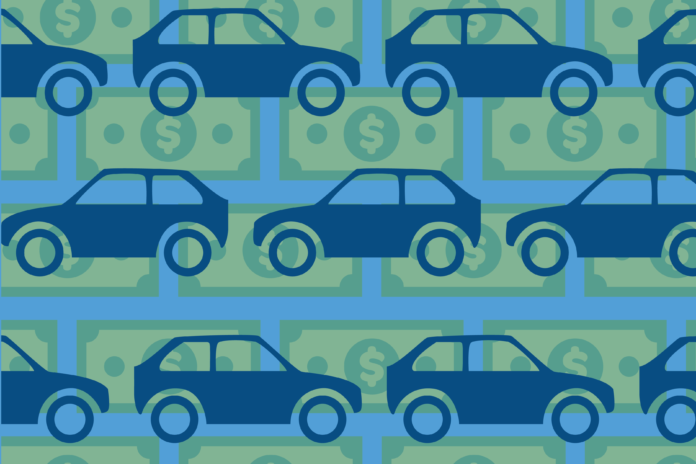Some fans opt to pay comparatively lower parking fine than pay parking fee
Going to watch your favorite college or professional team at its home stadium is a feeling like no other. The atmosphere, the fans and everything else makes that in-person experience special to many people. Since not everyone has the time or money to attend games consistently, many consider going to the ballpark a special occasion. Recently, however, a trend among sports stadiums has made driving to an event much more costly.
According to a recent story in the San Francisco Chronicle, fans of the Cal Berkeley Golden Bears football team will now have to pay $225 for parking around Memorial Stadium on game day. This is a significant increase from last year’s price of $100 and has many fans up in arms.
The reason behind the new price is related to people parking in areas that require a residential parking permit. Fans attending sporting events at Memorial Stadium receive a $98 fine if they park in residential areas without a permit. Since the fine is less than the $100 price for parking, many violations occurred as fans opted to pay the fine rather than pay for a more expensive permit. The price increase is intended to prevent fans from parking in residential areas and encourage them to look for alternative ways to get to the stadium, such as by public transportation.
Put into perspective, $225 is as much as nine times the price of the least expensive ticket to a typical Cal football game. Similarly, the cost of parking at other stadiums around the country has gone up considerably over the last couple of years. For example, a general parking spot in the “silver lot” for a Los Angeles Chargers home game in 2018 at the Dignity Health Sports Park (formerly known as StubHub Center) in Carson, CA, cost $100. This is only the Chargers’ temporary home. There has yet to be an announcement regarding the price of parking at the new $4 billion stadium in Inglewood, CA, but fans can expect the price to be around the same or even higher.
When the Rams relocated to Los Angeles in 2016, they hosted the Dallas Cowboys at the Los Angeles Memorial Coliseum for their first game back in Southern California. The Coliseum has been around for 96 years and is not in the best condition. Nearby parking garages priced parking from $80 to $100 for a preseason game. The same parking garages typically charge $25 for USC football games that are held in the same stadium. This pricing trend continues for the Rams as they play at the Coliseum for before they join the Bolts in the new L.A. stadium.
The Cowboys have also increased parking costs for fans, charging $75 for general parking at AT&T Stadium in Arlington, Texas. The parking fee is relatively low, because the Cowboys’ stadium is in the city of Arlington, where there are virtually no alternate methods of transportation. This results in fans having to drive to the stadium regardless if they want to pay or not.
The absurd parking costs on top of the already expensive seating in the stadium to watch the game has caused some fans to prefer other methods to travel, like public transportation. For instance, Levi’s Stadium in Santa Clara, CA, home to the San Francisco 49ers, has a train station right outside the stadium, making it easy for many fans to arrive and leave. The same rail line, and Bay Area Rapid Transit lines, perform similarly for Oakland Raiders fans. Whether fans are going to the Oakland Coliseum or Oracle Arena, use of these public options is a very practical way to save money and even time.
In the lead up to this past years’ Rams Divisional Playoff game (against the Cowboys, nonetheless) parking near and around the stadium was rumored to be in the $100 range. Many fans decided to take the public transportation route and used the Los Angeles Metro Rail System. The rail drops fans near Exposition Park in Downtown Los Angeles and is separated by a short walk to the stadium. People attending games at the Coliseum or near Downtown L.A. can choose a similar route and save a lot of money.
At Dodger Stadium, there are shuttle options that run to and from the stadium and the main train station. It is convenient and an efficient way to get more people into the park and reduce the traffic congestion on game day. This has been a common theme for teams around the nation: franchises like the New York Yankees, the 49ers, the Chargers, as well as major college programs like LSU and Kentucky, have chosen to add game day shuttles.
As the cost to attend games continues to rise in almost every aspect, it is becoming more and more difficult for a person or family to enjoy this amazing experience. Even when the tickets are relatively inexpensive, fans now have to worry about parking costs as well.
There are positives aspects of increased parking costs, however. Alternatives like public transportation and game day shuttles not only help ease traffic congestion, but also they reduce greenhouse gas emissions. As the popularity — and prices — for these sports and new expensive stadiums continue to grow, how much more can prices increase before people will have had enough?
Written by: Omar Navarro — sports@theaggie.org










